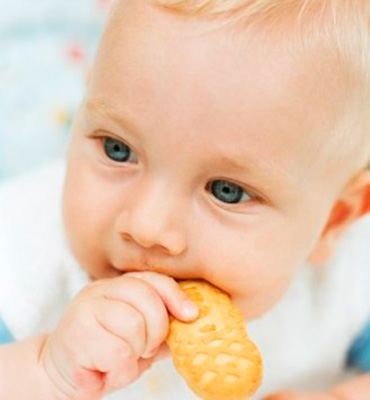Must-Knows About Baby Teething

Must-Knows About Baby Teething
As your baby grows older, you'll get to share and enjoy a range of different milestones that your bub reaches. Whether they blurt out a "mumma" or "dadda", build up the courage to take their first steps, or learn to go to the toilet all on their own, you'll want to be there with them and be proud of your little ones progress. Another major milestone in a child's life is when they cut their first tooth. This first little fang is a symbol of your child's development and is going to be with them for years to come!But it's not all happy days. Baby teething is often responsible for a broad range of baby health related issues. Baby teething can cause your child some mild discomfort, so look out for extra crying and general grumpiness from your little one.
This is why it's important to know a little bit more about teething, and how to deal with this stage of your baby's life. Most babies start the teething process between the ages of four and seven months.
Quicker developers may start around the three month mark, with late bloomers having their ivory sprout anywhere from 10 months to a year.
Most commonly, the first teeth to emerge in a baby are the bottom front teeth, followed by the upper front teeth. In most cases, your child will complete teething and have a full set of chompers around the age of three. These teeth will usually last until their adult teeth start to emerge at approximately six years old.
Signs of Teething
You may notice your bub becoming increasingly agitated or upset during this stage. It's not uncommon for you to notice your little one doing the following:
As much as it may break your heart to see your bubba hurting, there isn't much you can do to speed up the teething process. However, there are steps you can take to provide a little more comfort for them during teething. One thing you can do that works great is to put a clean washcloth in the fridge for a while, and once cold, give it to your baby to chew on. Of course, make sure you're supervising your child when doing this.
Caring for your Baby's Teeth
It's one thing to know when your baby is teething and how to help them, but it's another to actually care for their teeth once they poke through. This should be done as soon as they emerge; use a soft toothbrush and toothpaste with no added fluoride. You should also consider taking your little one to the dentist at around 1 year old just to make sure everything is going the way it should be.
Huggies has a wide range of information and resources on baby care, including baby teething and how to prevent tooth decay, tips on water and fluoride, oral hygiene advice and a baby teething chart to track your child's progress.
You shouldn't have anything to worry about when your baby is teething. As long as you understand what they're experiencing, and put a little effort into caring for their teeth, they will soon have a full smile and be able to gradually move on to feeding with solids. Get excited about it, your baby's growing up!
MORE



